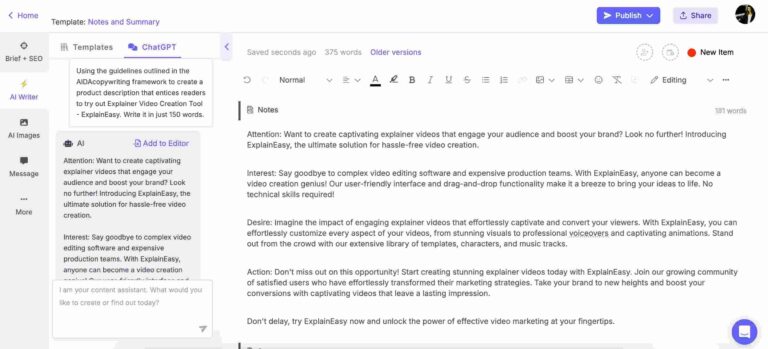Rungano Nyoni on Elevating African Cinema: Challenges, Creativity, and Future Aspirations
Unveiling the Distribution Dilemma in African Film Markets
In an open dialogue with Deadline, celebrated director Rungano Nyoni candidly addresses the persistent obstacles that African filmmakers encounter, especially regarding film distribution within their own countries. Despite a growing appetite for authentic African narratives, Nyoni points out that commercial priorities often overshadow these stories. She stresses that many distributors perceive limited financial gain in promoting local films, which results in a scarcity of platforms for indigenous content.
This lack of enthusiasm from distributors significantly hampers filmmakers who are passionate about portraying their cultural heritage but face an industry inclined to favor international productions over homegrown cinema. Nyoni underscores the necessity of nurturing domestic audiences to cultivate appreciation and demand for African films.
- Insufficient marketing budgets restrict visibility for many local productions.
- Stereotypes about production quality can unfairly diminish interest despite compelling storytelling.
- Piracy remains rampant, eroding potential revenue streams crucial for sustainability.
Nyoni advocates for stronger partnerships among filmmakers, regional distributors, and digital streaming services as a pathway to broaden access and recognition of African cinematic works. She calls on industry stakeholders to prioritize investment in native talent and stories that resonate deeply with local viewers.
The Artistic Vision Behind “On Becoming A Guinea Fowl”
“On Becoming A Guinea Fowl” represents more than just a film; it is Rungano NyoniŌĆÖs artistic meditation on identity transformation rooted in rich cultural traditions. Drawing inspiration from diverse elements of African folklore blended with magical realism, the project aims to engage both continental audiences and global viewers alike through its authentic portrayal of contemporary life across Africa.
Nyoni reveals how each narrative thread was carefully crafted to reflect genuine experiences while challenging conventional storytelling norms. However innovative her approach may be artistically, she confronts harsh realities when it comes to distributing such films locallyŌĆöhighlighting systemic barriers like limited screen availability and funding shortages that stifle creative diversity within the continentŌĆÖs cinematic landscape.
- Lack of exposure: Many indigenous films struggle to secure theatrical releases at home due to scarce venues or competing foreign blockbusters.
- Tight budgets: Financial constraints limit opportunities for varied storytelling voices across AfricaŌĆÖs vast regions.
- Difficult market conditions: Distributors frequently prioritize internationally proven titles over emerging local content despite its cultural significance.
This journey reflects both triumphs and trials inherent in modern African filmmakingŌĆöa testament to NyoniŌĆÖs dedication toward enriching cinema through culturally resonant narratives while navigating structural challenges head-on.
Aspiring Toward a Thriving Future: Rungano Nyoni’s Vision for Pan-African Cinema
Navigating beyond her current successes like “On Becoming A Guinea Fowl,” Rungano Nyoni envisions an inclusive ecosystem where stories from Africa are not only told but celebrated globally without compromise or dilution. She emphasizes embracing nuanced portrayals that honor Africa’s multifaceted cultures rather than perpetuating reductive stereotypes often seen abroad.
A major impediment remains entrenched distribution difficulties within domestic marketsŌĆöwhere many potential champions lack either resources or motivationŌĆöresulting in international content dominating screens at the expense of vibrant local voices.
- Cultivating robust infrastructure: Enhancing venues dedicated specifically toward showcasing indigenous films is critical.
- Nurturing global alliances: Strategic collaborations with worldwide distributors can amplify reach without compromising authenticity.
- Sustained cultural investment: Greater backing from governments alongside private sectors will empower creators financially & creatively.
The filmmaker remains optimistic about overcoming these hurdles through collective effort ŌĆö believing firmly that given adequate support systems ŌĆöAfrican cinema will flourish artistically & commercially on all stages worldwide.
The Road Ahead: Embracing Change Within Africa’s Film Industry Landscape
The insights shared by Rungano Nyoni illuminate deep-rooted challenges obstructing widespread acceptance and success of locally produced films throughout Africa today. Her reflections reveal how distributor apathy towards indigenous projects necessitates urgent reformŌĆönot only economically but culturallyŌĆöto ensure diverse voices thrive amid globalization pressures.
As she advances new projects inspired by her ongoing commitment toward authentic representation via *On Becoming A Guinea Fowl*ŌĆÖs legacy, a call emerges urging audiences along with industry leaders alike : champion inclusivity by supporting initiatives designed explicitly around elevating native storytellers.
Ultimately, a future beckons where Africans see themselves vividly portrayed onscreenŌĆönot merely as subjects filtered through external lensesŌĆöbut as protagonists shaping their own cinematic destinies.*”—a vision fueled by passion yet grounded pragmatically amidst evolving market realities.
In summary, NyoniŌĆÖs candid discourse underscores an imperative shift needed within film distribution frameworks across AfricaŌĆöto foster environments where creativity meets opportunity seamlessly.↑”—a mission vital not just artistically but socially as well.
With continued advocacy combined with strategic collaboration between creators & gatekeepers alike, African cinema stands poised not only —“*to captivate global audiences*”, but also
*to reclaim its rightful place at home*, inspiring generations anew through powerful visual storytelling rooted deeply within its own soil.







